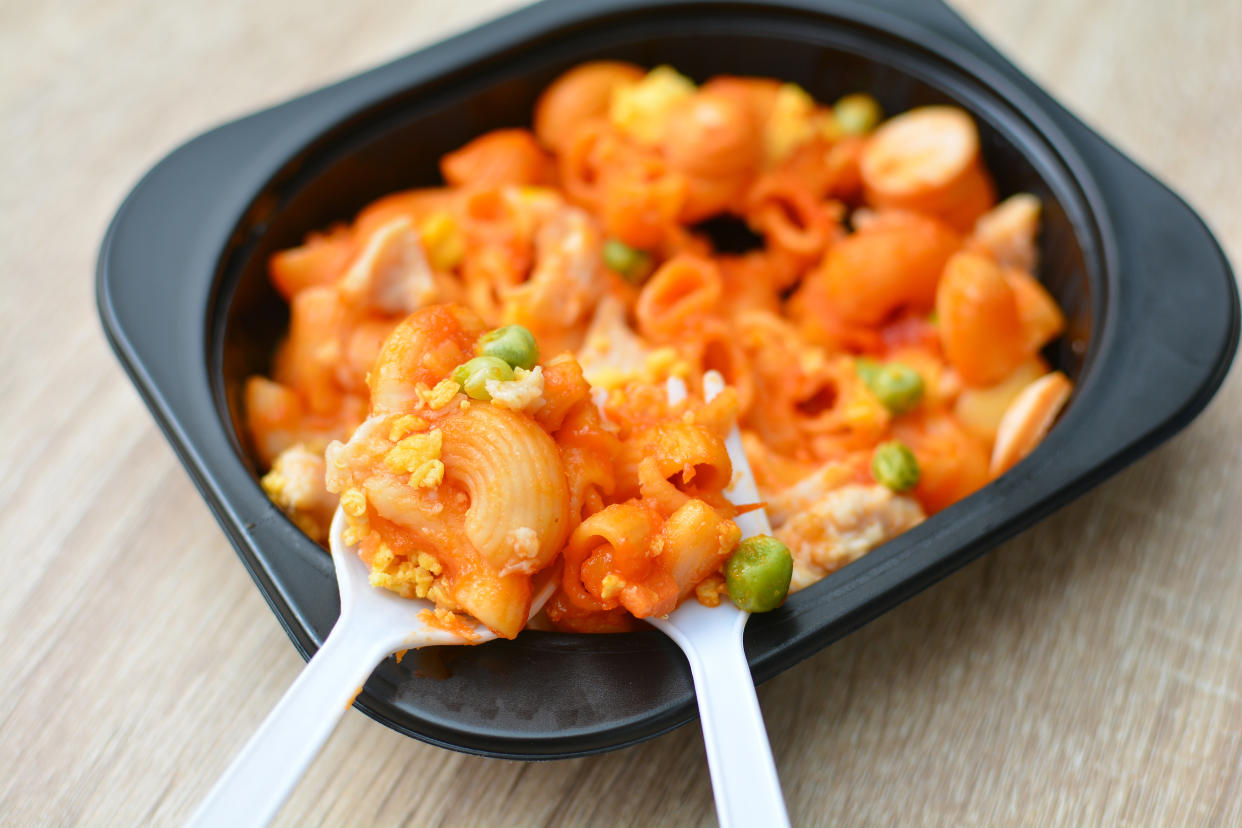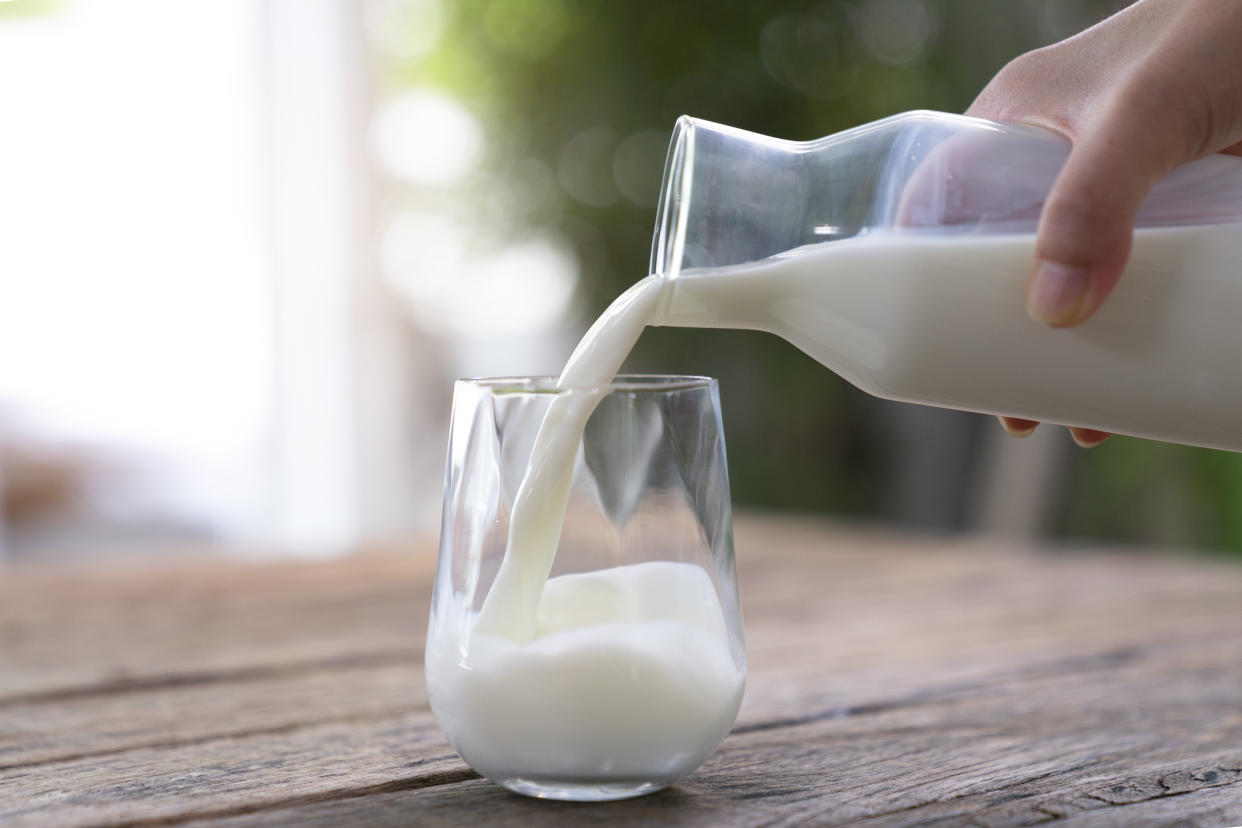Trust the process? Why processed food isn't always bad for us

Cereal for breakfast, a pasty for lunch and a ready meal for dinner – it's easy for our processed food intake to build up.
Although it's often associated with microwave meals, any food that has been altered during its preparation is considered to be processed – whether via freezing, frying, baking or canning.
Most people know cakes, biscuits and sodas should be enjoyed in moderation, but seemingly healthy products like canned vegetables, bread and even milk are technically processed.
Read more: Chocolate in the morning helps post-menopausal women burn fat
Many rely on these store cupboard staples for a quick-turnaround meal, but are processed foods automatically bad for us?
Why are some processed foods unhealthy?
Processed food gets a bad rap due to the salt, sugar and fat that is often added to make it more palatable and extend the product's shelf life. Salt in bread and sugar in cakes also contributes to the food's texture.
"Too much salt in the diet can increase the risk of high blood pressure – a risk factor for stroke – while saturated fat and sugar can increase levels of cholesterol in the body, which is a risk factor for coronary heart disease," Rob Hobson, head of nutrition at Healthspan, told Yahoo UK.
Read more: Fish oil supplements may combat antibiotic resistance
"The impact this has on disease risk is exacerbated by the fact a diet rich in these types of foods may lack essential vitamins and minerals, which have many roles to play in the body, as well as helping to limit cell damage and inflammation – considered to be at the root of many diseases."
Processed meat in particular – like salami, bacon and ham – often also contains preservatives that have been linked to bowel cancer.

Are some foods more processed than others?
Unprocessed food is in a totally natural state, like an apple, pepper or plum.
"In the simplest terms, food processing is any process that changes a food from its original form," registered dietitian Juliette Kellow told Yahoo UK.
"This is what most of us do every time we cook – we process a range of ingredients by washing, chopping and heating them to make a meal."
Milk is pasteurised to remove harmful bacteria, turning it into a "minimally processed" drink. Heart-healthy olive oil is also processed by definition, due to the olives being pressed.
"Minimally processed includes foods that have been dried, crushed, roasted, frozen, boiled or pasteurised and have no other ingredients added to them – such as frozen fruits, vegetables, fish, 100% fruit juice, plain natural yoghurt, canned fish and dried spices," said Hobson.
Read more: Coffee cuts liver disease death risk in half
According to the food classification system NOVA, "processed culinary ingredients" include cooking oils, butter, sugar and salt.
Combining "minimally processed" foods with "processed culinary ingredients" creates products like smoked and cured meat, salted nuts and canned fruit in syrup – all defined as "processed".
Ultra-processed foods "contain ingredients that would not be found in home cooking, such as colourings, sweeteners, preservatives and chemicals you may not recognise the name of", according to Hobson.
"A good example here is bread, which can contain more than 10 ingredients, including preservatives and emulsifiers," he added.
Ready meals, certain breakfast cereals, sweets, biscuits, soda, pre-made sauces and shop-bought salad dressings can also fall into the "ultra processed" category.
Can processed food be healthy?
Not all processed foods are created equal.
"Despite the negative connotations associated with the term 'processed food' they are actually not all that bad and in some cases can be a healthy, convenient and cost-effective way to eat," said Hobson.
"You can create quick, simple and cost effective meals from store-cupboard ingredients such as canned tomatoes, pulses and fish, as well as adding other healthy ingredients such as frozen vegetables and dried spices.
"Certain breakfast cereals are also classed as being minimally processed and can be topped with milk, yoghurt, fruit, nuts and seeds."
Read more: Fasting 'no magic bullet' for weight loss
Frozen fruit and tinned fish also fall under the processed bracket, but are both highly nutritious.
"Bread provides B vitamins and fibre if wholemeal varieties are chosen," added Kellow.
"Breakfast cereals can add B vitamins and iron to our diets.
"Cheese and yogurts are an important source of protein, calcium and phosphorus."
Watch: Mediterranean diet named best eating plan for fourth consecutive year
How to cut your processed food intake
If you are concerned about your processed food consumption, reading a food label's ingredients should help you cut your intake.
"As a rule of thumb, just avoid anything that contains an ingredient you don't recognise or have difficulty pronouncing," said Hobson.
Kellow has stressed, however, no one ingredient is "bad for us" in isolation, with people instead having to look at their overall diet.
"Some products include red, amber and green colours on the front of their packaging – often called traffic light labelling – to help us identify at a glance whether a product contains high, medium or low amounts of fat, saturates, sugars and salt," she added.
"The more green there is on the label, the healthier the choice. Amber means the product isn't high or low so you can eat these foods most of the time.
"In contrast, red is a warning sign the product is high in a specific nutrient and so shouldn't be eaten too often."
Snacks – like sweets, biscuits and cakes – are many people's downfall.
"It's better to choose more nutrient-rich snacks," said Kellow. "Snacking on a handful of almonds is a great choice.
"They're naturally low in sugar and salt, plus provide protein and fibre, are rich in monounsaturated fats, and are packed with nutrients including calcium, iron, magnesium, phosphorus, zinc, copper, several B vitamins and vitamin E."
Even ultra-processed foods do not have to eliminated altogether – remember: everything in moderation.
"You have to be a little realistic and there is nothing wrong with eating the occasional ultra-processed food," said Hobson.
"Viewing them as more of a treat food will make them more enjoyable than relying on them as part of your everyday diet."
Watch: Limit processed food to boost your mood



